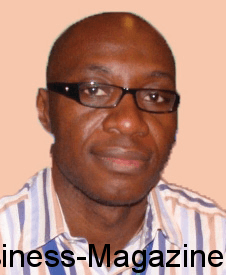Who bears the brunt of fake goods?
Share

Fake goods are easy to come by, especially here in Africa. One doesn’t have to go very far to find someone willing to sell you anything from a fake mobile phone to a fake weave. And while it is often known that trading in these goods is illegal, it is often perceived as a moreor- less ‘victimless’ crime – with the only victims seen to be large corporations, or in the case of the entertainment industry, mega- rich superstars. But, unfortunately, the real victims of fake goods are usually not only consumers themselves, but whole communities of innocent people across the continent.
The consumer impact
At the centre of a brand is not only a ‘promise’ to the consumer, but also a tangible source of accountability and responsibility for the goods that are sold to consumers. While the lack of ‘quality control’ in the manufacturing process of a fake handbag may not have any significant impact on the person who buys it - when it comes to many other fake goods, the stakes are much higher.
The producers and sellers of fake goods have no regard for the customer after the sale is made. Take for example counterfeit phones – while they may be cheap, they come with no warranty, are not tested properly for electricity control, and cause decreased network quality. Fake sweets often contain higher levels of certain substances than as agreed by government, putting the health of innocent children at risk. And, fake brake pads, often used by taxi drivers, are one way of cutting costs – but they don’t meet industry standards, so they put the lives of thousands of passengers at risk, as well as other road users.
In the software industry, a study by IDC (2006) on the risks of obtaining and using pirated software shows the same dangerous trend.
The authors state that “25% of the Web sites we accessed offering counterfeit product keys, pirated software, key generators or crack tools attempted to install either malicious or potentially unwanted software. There are a significant number of sites that will attempt to install malicious or unwanted code.” The list goes on.
Perhaps the most devastating of all is the increasing trade in fake pharmaceuticals, which has become a huge problem across the continent. They include fake treatments for life-threatening diseases such as HIV/Aids, malaria and tuberculosis.
Taking these medicines is a fatal gamble, which can lead to death if they contain even the slightest error in their chemical makeup, which they often do. In fact, the authors of the Lancet Infectious Diseases Journal have said that they believe that criminals who manufacture and sell fake pharmaceuticals should be prosecuted for ‘crimes against humanity’.
The wider societal effects
Intellectual property (IP) violations also have economic, social and cultural ramifications that impact whole societies. Economically, the counterfeit and pirated goods industry slows down economic growth, leads to job losses, stifles legitimate trade, and deters foreign investors. In many instances, such as in the case of fake cigarettes, it leads to a huge loss in tax revenue, which would otherwise be spent on welfare. Illegal trade is also often linked to larger organized crime syndicates – so while you might think of the sellers of fake DVDs as’petty’ criminals, their profits are often used to fund more serious criminal activities.
Artists, doctors, inventors, musicians, and computer scientists are some of the people in our society that gain the most admiration from the general And for good reason – they possess a special currency that sets them apart of from the rest – and that is the currency of innovation. Every country in Africa needs more of this currency in order to find unique solutions to local problems, to stimulate the economy, and to become globally competitive. But unfortunately, piracy and the lack of strong intellectual property legislation is particularly damaging to small businesses and individuals in Africa.
Innovators stand less change of gaining international funding, as investors are hesitant to put money into an idea that might easily be stolen and replicated, with little to no change of being caught or prosecuted. This severely limits progress across many different industries.
A cause to unite against
When you consider that the real victims of intellectual property violations are ordinary people, it is clear that we need to pay more attention to this issue, in all its manifestations.
This means educating others about the risks and effects of buying fake goods, supporting local copyright agencies and intellectual property organisations in their efforts, and using available resources to check on whether goods you purchase are genuine. For example, at Microsoft our website, www.howtotell. com, helps consumers ensure that the software they have purchased is genuine.
If we are to prevent the people of Africa from unjustly paying the price of piracy, the fight against ‘fakes’ requires strong support from both consumers, as well as the private and public sectors in every country on the continent.

















